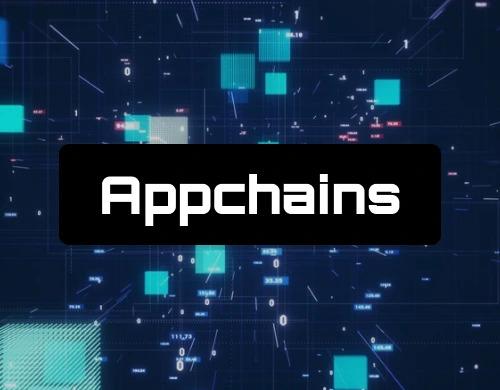Blockchain technology, with its decentralized and transparent nature, has evolved beyond its initial applications in cryptocurrencies. One of the latest trends gaining momentum is the development of Application-Specific Blockchains. These blockchains are tailor-made to cater to the specific needs and requirements of particular applications or industries, offering a more efficient and targeted approach. In this blog, we will explore the concept of Application-Specific Blockchains, their advantages, and the impact they have on various sectors.
Understanding Application-Specific Blockchains:
Traditional blockchains, like Bitcoin and Ethereum, serve as general-purpose platforms with diverse use cases. However, as industries become more specialized, the demand for customized solutions has given rise to Application-Specific Blockchains. These blockchains are designed to meet the unique demands of a particular application or industry, providing optimized functionality, increased efficiency, and often addressing specific challenges inherent to that domain.
Key Characteristics of Application-Specific Blockchains:
-
Tailored Consensus Mechanism: Application-Specific Blockchains often deploy consensus mechanisms that are specifically suited to the needs of the targeted application. For example, some applications may prioritize speed and low transaction costs, while others might require a more rigorous and secure consensus model.
-
Customized Smart Contracts: Smart contracts, self-executing contracts with the terms of the agreement directly written into code, are a fundamental component of blockchains. Application-Specific Blockchains can customize smart contracts to automate specific processes relevant to the targeted industry, streamlining operations and reducing costs.
-
Industry-Specific Tokens: Many Application-Specific Blockchains introduce industry-specific tokens that serve as a medium of exchange within the ecosystem. These tokens can represent assets, rights, or utilities tailored to the particular needs of the application.
-
Enhanced Performance: By focusing on specific use cases, these blockchains can optimize their infrastructure and parameters for better performance. This often results in faster transaction processing times, increased throughput, and improved scalability compared to general-purpose blockchains.
Advantages of Application-Specific Blockchains:
-
Increased Efficiency: Application-Specific Blockchains eliminate unnecessary functionalities, focusing solely on the requirements of the targeted application. This streamlined approach enhances efficiency, reduces resource consumption, and lowers transaction costs.
-
Tailored Security Measures: Customized security features ensure that the blockchain is specifically fortified against threats prevalent in the targeted industry. This enhances the overall security and trustworthiness of the blockchain network.
-
Industry-Specific Use Cases: Application-Specific Blockchains are designed with particular industries or use cases in mind. This targeted approach allows for the development of solutions that seamlessly integrate with existing processes, addressing specific pain points within that industry.
-
Community Alignment: These blockchains often foster a sense of community alignment. Participants within the ecosystem, whether they are users, developers, or stakeholders, share a common interest or goal, leading to more engaged and collaborative communities.
Use Cases of Application-Specific Blockchains:
-
Supply Chain Management: Blockchain solutions tailored for supply chain management can enhance transparency, traceability, and efficiency. These blockchains can streamline processes, reduce fraud, and provide real-time visibility into the movement of goods.
-
Healthcare Data Management: Application-Specific Blockchains in healthcare can address the unique challenges of managing sensitive patient data. They ensure secure and interoperable sharing of health records while maintaining privacy and compliance with regulatory standards.
-
Real Estate Transactions: Blockchain solutions designed for real estate transactions can simplify and automate complex processes, such as property transfers, title management, and contract execution. This can reduce paperwork, minimize fraud, and expedite the overall transaction process.
-
Gaming and Entertainment: Application-Specific Blockchains cater to the gaming and entertainment industry by providing decentralized platforms for in-game assets, digital rights management, and tokenized rewards. These blockchains enhance the gaming experience and empower content creators.
Conclusion:
Application-Specific Blockchains represent a paradigm shift in the blockchain space, offering targeted solutions for specific industries or applications. As technology continues to advance, these tailored blockchains are poised to play a pivotal role in addressing industry-specific challenges, optimizing processes, and fostering innovation. The future holds exciting possibilities as more industries recognize the potential of Application-Specific Blockchains to revolutionize their operations and unlock new opportunities for growth and efficiency.




